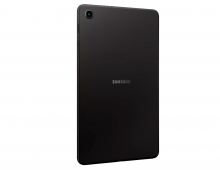
Tablets Hurting PC Sales
This year, the popularity of tablets hurt PC sales, as new data from two market research firms indicate PC shipments declined in the first three months of 2011.
Worldwide PC shipments totaled 84.3 million units in the first quarter of 2011, a 1.1 percent decline from the first quarter of 2010, according to preliminary results from Gartner, Inc. Although the first quarter is traditionally a slow one for PC sales, these shipment results indicate potential sluggishness, not just a normal seasonal slowdown. These figures are below Gartner's earlier forecast for 3 percent growth in the first quarter of 2011.
"Weak demand for consumer PCs was the biggest inhibitor of growth," said Mikako Kitagawa, principal analyst at Gartner. "Low prices for consumer PCs, which had long stimulated growth, no longer attracted buyers. Instead, consumers turned their attention to media tablets and other consumer electronics. With the launch of the iPad 2 in February, more consumers either switched to buying an alternative device, or simply held back from buying PCs. We're investigating whether this trend is likely to have a long-term effect on the PC market."
Steady growth in the professional PC sector, driven by the replacement cycle, was a bright spot for the global PC market. Without the professional segment growth, the PC market could have experienced one of the worst declines in its recent history, Gartner said. Replacement sales will generally continue into late 2011 or the start of 2012, with some variations between different regions and market segments.
According to Gartner's data, HP performed below the worldwide average, but maintained the No. 1 position, accounting for 17.6 percent of worldwide PC shipments in the first quarter of 2011. HP was impacted by weak consumer PC demand, as well as growing issues in Asia/Pacific.

Research firm IDC also has Palo Alto-based Hewlett-Packard Co. as the world's top PC maker, although IDC pegs HP had nearly 19 percent of the market.
According to Gartner, Acer continued to face challenges as the mini-notebook market was impacted by media tablets, and its shipments declined 12.2 percent. Dell experienced a shipment decline year-over-year for the first time in six quarters. Dell underperformed in the U.S., Europe, the Middle East and Africa (EMEA) and Latin America, but it achieved strong growth in Asia/Pacific, Gartner estimated. IDC, meanwhile, has Dell in the second-place spot, with almost 13 percent of the market, and Acer third, with slightly more than 11 percent.
Gartner also said that Lenovo experienced the strongest growth among the top five vendors (16.6 percent) as it continued to price its products very competitively in both the consumer and professional sectors. It achieved strong growth across all regions.
Stateside, both market research firms agree HP and Dell took the No. 1 and No. 2 spots, respectively, but Gartner's data placed Acer and Toshiba in third and fourth, while IDC's data showed Toshiba in third and Apple in fourth.
In the U.S., PC shipments totaled 16.1 million units in the first quarter of 2011, a 6.1 percent decline from the first quarter of 2010, according to Gartner. "As with the worldwide market, the U.S. PC market was affected by the hype surrounding media tablets. This was the third consecutive quarter of mobile PC shipment declines in the U.S.," Ms. Kitagawa said. "The U.S. professional PC market showed steady growth across all sectors. However, the public sector showed more than the normal seasonal weakness due to budgetary issues."
HP continued to lead the U.S. market with its market share increasing to 26.2 percent, despite a shipment decline of 3.5 percent in the first quarter. While HP struggled in the consumer PC market, it also encountered tough price competition in the professional segment, especially in the midmarket.
Dell faced tough competition in both the U.S. consumer and professional markets. The challenge for Dell arose in the midmarket, where more vendors tried to squeeze in to benefit from professional PC refresh cycles. Apple maintained strong shipment growth, even after the holiday season. The MacBook Pro refresh at the end of February accelerated already strong Mac growth.
"Weak demand for consumer PCs was the biggest inhibitor of growth," said Mikako Kitagawa, principal analyst at Gartner. "Low prices for consumer PCs, which had long stimulated growth, no longer attracted buyers. Instead, consumers turned their attention to media tablets and other consumer electronics. With the launch of the iPad 2 in February, more consumers either switched to buying an alternative device, or simply held back from buying PCs. We're investigating whether this trend is likely to have a long-term effect on the PC market."
Steady growth in the professional PC sector, driven by the replacement cycle, was a bright spot for the global PC market. Without the professional segment growth, the PC market could have experienced one of the worst declines in its recent history, Gartner said. Replacement sales will generally continue into late 2011 or the start of 2012, with some variations between different regions and market segments.
According to Gartner's data, HP performed below the worldwide average, but maintained the No. 1 position, accounting for 17.6 percent of worldwide PC shipments in the first quarter of 2011. HP was impacted by weak consumer PC demand, as well as growing issues in Asia/Pacific.

Research firm IDC also has Palo Alto-based Hewlett-Packard Co. as the world's top PC maker, although IDC pegs HP had nearly 19 percent of the market.
According to Gartner, Acer continued to face challenges as the mini-notebook market was impacted by media tablets, and its shipments declined 12.2 percent. Dell experienced a shipment decline year-over-year for the first time in six quarters. Dell underperformed in the U.S., Europe, the Middle East and Africa (EMEA) and Latin America, but it achieved strong growth in Asia/Pacific, Gartner estimated. IDC, meanwhile, has Dell in the second-place spot, with almost 13 percent of the market, and Acer third, with slightly more than 11 percent.
Gartner also said that Lenovo experienced the strongest growth among the top five vendors (16.6 percent) as it continued to price its products very competitively in both the consumer and professional sectors. It achieved strong growth across all regions.
Stateside, both market research firms agree HP and Dell took the No. 1 and No. 2 spots, respectively, but Gartner's data placed Acer and Toshiba in third and fourth, while IDC's data showed Toshiba in third and Apple in fourth.
In the U.S., PC shipments totaled 16.1 million units in the first quarter of 2011, a 6.1 percent decline from the first quarter of 2010, according to Gartner. "As with the worldwide market, the U.S. PC market was affected by the hype surrounding media tablets. This was the third consecutive quarter of mobile PC shipment declines in the U.S.," Ms. Kitagawa said. "The U.S. professional PC market showed steady growth across all sectors. However, the public sector showed more than the normal seasonal weakness due to budgetary issues."
HP continued to lead the U.S. market with its market share increasing to 26.2 percent, despite a shipment decline of 3.5 percent in the first quarter. While HP struggled in the consumer PC market, it also encountered tough price competition in the professional segment, especially in the midmarket.
Dell faced tough competition in both the U.S. consumer and professional markets. The challenge for Dell arose in the midmarket, where more vendors tried to squeeze in to benefit from professional PC refresh cycles. Apple maintained strong shipment growth, even after the holiday season. The MacBook Pro refresh at the end of February accelerated already strong Mac growth.





















